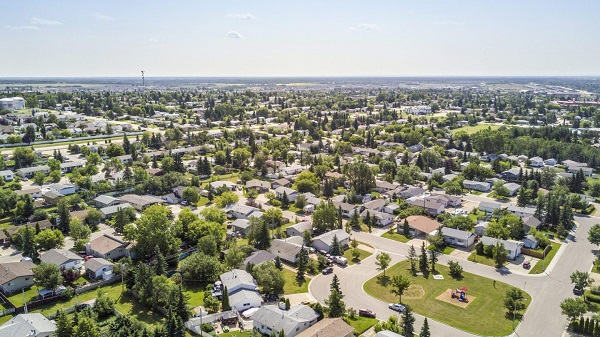Alberta
“Butt out, Creeps”: ALERT issues sextortion warning

From ALERT (Alberta Law Enforcement Response Team)
While the number of sextortion cases remains high for ALERT’s Internet Child Exploitation team, the province-wide unit is launching a multi-media awareness campaign that says “butt out, creeps”.
“Butt out, creeps” is campaign to raise awareness and help youth get smart about sextortion. ALERT worked with DDB Canada to research and develop the campaign, which officially launched on social media channels earlier this month and has already generated over one million impressions.
The ads, featuring dancing eggplant and peach emoji characters, are running on Snapchat, TikTok, YouTube, online gaming platforms and can also be found on the web at buttoutcreeps.ca. The singing eggplant tells kids, “don’t be a wang, don’t be a boob, sending nude pics to strangers makes you look like a newb”. Meanwhile the peach character sings, “if someone you know asks you for a nude, tell someone you trust, then ghost that weird dude”.
“Sextortion cases are completely debilitating for youth and have become all too frequent – and it is happening inside our homes. We are hoping this campaign allows us to connect with youth online, and provide education and supporting resources in a manner that is accessible and noteworthy,” said Supt. Marc Cochlin, ALERT CEO.
The ads are aimed towards connecting with youth between 10 and 17 years of age, who ICE has found to be the primary target of sextortion cases.
Sextortion is where children, specifically boys, are being coerced into sending explicit images online and are then extorted for money, e-transfers, or gift cards. Predators often pose as girls of a similar age and use fake accounts to target youth. Investigating sextortion is challenging as the suspects are believed to be operating overseas, much the same manner as more traditional phone scammers.
The campaign’s primary message is to dissuade youth from sharing nudes online, but to “get smart about sextortion” by following a link to our website with resources and tips.
Last year, ICE received nearly 3,000 case referrals. Record numbers for Alberta as online child sexual exploitation offences have increased by more than 185% in the past five years.
While the ads are designed to connect more with youth, parents also play an important role in prevention. Studies show that 1 in 3 victims of sextortion never told anyone, largely due to embarrassment or shame. Resources for parents are also posted online at buttoutcreeps.ca.
About DDB Canada
DDB Canada is part of DDB Worldwide, one of the world’s largest and most influential advertising and marketing networks. Known for advertising that generates significant results for clients, DDB Canada’s fundamental belief is that creativity is the most powerful force in business. Founded in 1949, DDB is part of the Omnicom Group (NYSE: OMC).
About ALERT
ALERT was established and is funded by the Alberta Government and is a compilation of the province’s most sophisticated law enforcement resources committed to tackling serious and organized crime. Integrated ICE teams investigate offences related to the exploitation of children over the Internet.
Alberta
REPORT: Alberta municipalities hit with $37 million carbon tax tab in 2023

Grande Prairie. Getty Images photo
From the Canadian Energy Centre
Federal cash grab driving costs for local governments, driving up property taxes
New data shows the painful economic impact of the federal carbon tax on municipalities.
Municipalities in Alberta paid out more than $37 million in federal carbon taxes in 2023, based on a recent survey commissioned by Alberta Municipal Affairs, with data provided to the Canadian Energy Centre.
About $760,000 of that came from the City of Grande Prairie. In a statement, Mayor Jackie Clayton said “if the carbon tax were removed, City property taxes could be reduced by 0.6 per cent, providing direct financial relief to residents and businesses in Grande Prairie.”
Conducted in October, the survey asked municipal districts, towns and cities in Alberta to disclose the amount of carbon tax paid out for the heating and electrifying of municipal assets and fuel for fleet vehicles.
With these funds, Alberta municipalities could have hired 7,789 high school students at $15 per hour last year with the amount paid to Ottawa.
The cost on municipalities includes:
Lloydminster: $422,248
Calgary: $1,230,300 (estimate)
Medicine Hat: $876,237
Lethbridge: $1,398,000 (estimate)
Grande Prairie: $757,562
Crowsnest Pass: $71,100
Red Deer: $1,495,945
Bonnyville: $19,484
Hinton: $66,829
Several municipalities also noted substantial indirect costs from the carbon tax, including higher rates from vendors that serve the municipality – like gravel truck drivers and road repair providers – passing increased fuel prices onto local governments.
The rising price for materials and goods like traffic lights, steel, lumber and cement, due to higher transportation costs are also hitting the bottom line for local governments.
The City of Grande Prairie paid out $89 million in goods and services in 2023, and the indirect costs of the carbon tax “have had an inflationary impact on those expenses” in addition to the direct costs of the tax.
In her press conference announcing Alberta’s challenge to the federal carbon tax on Oct. 29, 2024, Premier Danielle Smith addressed the pressures the carbon tax places on municipal bottom lines.
“In 2023 alone, the City of Calgary could have hired an additional 112 police officers or firefighters for the amount they sent to Ottawa for the carbon tax,” she said.
In a statement issued on Oct. 7, 2024, Ontario Conservative MP Ryan Williams, shadow minister for international trade, said this issue is nationwide.
“In Belleville, Ontario, the impact of the carbon tax is particularly notable. The city faces an extra $410,000 annually in costs – a burden that directly translates to an increase of 0.37 per cent on residents’ property tax bills.”
There is no rebate yet provided on retail carbon pricing for towns, cities and counties.
In October, the council in Belleville passed a motion asking the federal government to return in full all carbon taxes paid by municipalities in Canada.
The unaltered reproduction of this content is free of charge with attribution to the Canadian Energy Centre.
Alberta
MAiD In Alberta: Province surveying Albertans about assisted suicide policies

Alberta’s government is launching a public engagement to gather input about legislation and policies around assisted suicide, also referred to as medical assistance in dying (MAID).
Medical assistance in dying is a process that allows an eligible person to receive assistance from a medical practitioner in ending their life. To be found eligible, a person must be suffering from a serious and permanent medical condition.
Alberta’s government is reviewing how MAID is regulated to ensure there is a consistent process as well as oversight that protects vulnerable Albertans, specifically those living with disabilities or suffering from mental health challenges. An online survey is now open for Albertans to share their views and experiences with MAID until Dec. 20.
“We recognize that medical assistance in dying is a very complex and often personal issue and is an important, sensitive and emotional matter for patients and their families. It is important to ensure this process has the necessary supports to protect the most vulnerable. I encourage Albertans who have experience with and opinions on MAID to take this survey.”
In addition to the online survey, Alberta’s government will also be engaging directly with academics, medical associations, public bodies, religious organizations, regulatory bodies, advocacy groups and others that have an interest in and/or working relationship to the MAID process, health care, disabilities and mental health care.
Feedback gathered through this process will help inform the Alberta government’s planning and policy decision making, including potential legislative changes regarding MAID in Alberta.
“Our government has been clear that we do not support the provision of medically assisted suicide for vulnerable Albertans facing mental illness as their primary purpose for seeking their own death. Instead, our goal is to build a continuum of care where vulnerable Albertans can live in long-term health and fulfilment. We look forward to the feedback of Albertans as we proceed with this important issue.”
“As MAID is a federally legislated and regulated program that touches the lives of many Albertans, our priority is to ensure we have robust safeguards to protect vulnerable individuals. Albertans’ insights will be essential in developing thoughtful policies on this complex issue.”
The federal Criminal Code sets out the MAID eligibility criteria, procedural safeguards and reporting obligations. The federal government has paused MAID eligibility for individuals with a mental illness as their sole underlying medical condition until March 2027 to ensure the provincial health care systems have processes and supports in place. Alberta’s government does not support expanding MAID eligibility to include those facing depression or mental illness and continues to call on the federal government to end this policy altogether.
Related information
-

 Brownstone Institute18 hours ago
Brownstone Institute18 hours agoThe Most Devastating Report So Far
-

 Economy1 day ago
Economy1 day agoCOP 29 leaders demand over a $1 trillion a year in climate reparations from ‘wealthy’ nations. They don’t deserve a nickel.
-

 Censorship Industrial Complex22 hours ago
Censorship Industrial Complex22 hours agoAnother Mass Grave?
-

 ESG5 hours ago
ESG5 hours agoCan’t afford Rent? Groceries for your kids? Trudeau says suck it up and pay the tax!
-

 Alberta21 hours ago
Alberta21 hours agoMAiD In Alberta: Province surveying Albertans about assisted suicide policies
-

 Energy1 day ago
Energy1 day agoOttawa’s proposed emission cap lacks any solid scientific or economic rationale
-

 Alberta1 day ago
Alberta1 day agoOn gender, Alberta is following the science
-

 International6 hours ago
International6 hours agoElon Musk praises families on X: ‘We should teach fear of childlessness,’ not pregnancy

